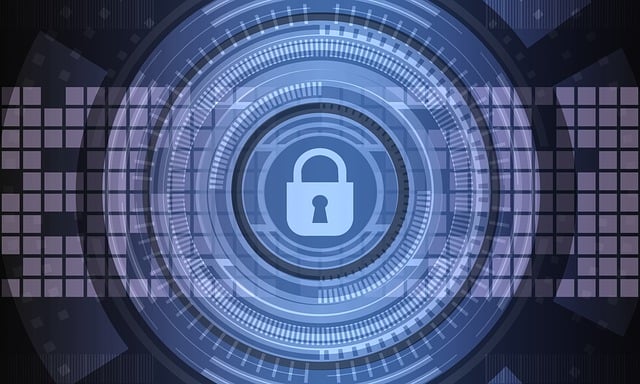Unveiling the Future: How Quantum Computing is Revolutionizing Encryption and Cybersecurity

The realm of cybersecurity is perched on the cusp of a seismic shift, thanks to the prodigious potential of quantum computing. Once confined to the theoretical, quantum computers are now inching towards reality, promising to redefine encryption and reshape the entire spectrum of cybersecurity. This article explores the transformative influence of quantum computing on encryption and its burgeoning applications in cybersecurity.
The Quantum Computing Revolution
At the heart of quantum computing lies the principle of quantum mechanics. Traditional computers use bits as the smallest unit of data, represented by 1s and 0s. Quantum computers, on the other hand, use quantum bits or qubits, which can exist in multiple states simultaneously, thanks to superposition. Furthermore, entanglement, another quantum phenomenon, enables qubits to be interdependent despite distances, offering unprecedented processing power and speed.
Quantum Supremacy
In 2019, Google claimed to have achieved ‘quantum supremacy’ by performing a calculation on a quantum computer that would take the world’s most powerful supercomputer thousands of years to complete. While there is some debate over the implications, this milestone has intensified interest in quantum computing’s capabilities, particularly concerning encryption and cybersecurity.
The Impact on Encryption
Encryption secures data by transforming information into a code to prevent unauthorized access. Modern encryption methods like RSA and ECC rely on the difficulty of mathematical problems like factoring large numbers or discrete logarithms for security. Unfortunately, these encryption strategies, once thought unbreakable, are now under threat due to quantum computing.
Quantum Threat to Current Encryption Standards
Algorithms like Shor’s algorithm, designed for quantum computers, can factor large numbers and compute discrete logarithms exponentially faster than classical computers. This capability could potentially decrypt data protected by current standards within a negligible timeframe, posing a significant risk to data security.
The Advent of Quantum-Safe Encryption
The cybersecurity industry is preemptively countering a future where quantum computers can break classical encryption with the development of quantum-resistant or quantum-safe encryption techniques that even quantum computers struggle to crack.
Post-Quantum Cryptography
Post-quantum cryptography involves creating encryption algorithms, intended for classical computers, which remain secure against both quantum and conventional decryption methods. The National Institute of Standards and Technology (NIST) is currently evaluating several post-quantum cryptographic algorithms to standardize new, secure encryption methods for the quantum era.
Quantum Key Distribution (QKD)
QKD exploits quantum mechanics’ properties to share encryption keys in an utterly secure manner. Any attempt at eavesdropping on the key distribution can be detected, as it inevitably alters the quantum states of the particles involved. QKD has been successfully implemented in some applications, paving the way for a new security paradigm.
Potential Applications in Cybersecurity
Beyond robust encryption, quantum computing promises a multiverse of applications within the cybersecurity realm, driving innovation and securing digital infrastructure against sophisticated attacks.
Secure Communications
Quantum computing could facilitate unhackable communication lines, making it invaluable for government and military operations where confidentiality is paramount. Commercial sectors such as banking could also benefit from quantum-secure channels for secure transactions and communications.
Advanced Threat Detection
The immense computational power of quantum computers enables the analysis of vast datasets quickly, enhancing the detection of cyber threats and anomalies that would be missed by classical computers. This augmented capacity for threat detection is vital for preemptive cybersecurity strategies.
Quantum Random Number Generation
True randomness is crucial for secure cryptographic processes. Quantum random number generators produce unpredictable and high-quality random numbers, fortifying cryptographic systems against attacks that exploit predictable pseudo-random number generation.
Challenges in Quantum Computing and Cybersecurity
While quantum computing heralds a new dawn in encryption and cybersecurity, it also introduces an array of challenges that require attention.
Technical and Resource Challenges
The creation and maintenance of quantum computers demand precise conditions and significant investment. Quantum systems need to be kept near absolute zero temperatures, and qubits must be isolated from any external environment to prevent decoherence, which remains an engineering and financial challenge.
Security and Ethical Concerns
Quantum computing’s vast capabilities could be exploited for nefarious purposes, such as breaking state secrets or creating new forms of cyberattacks. Regulation and ethical frameworks must evolve alongside quantum technology to mitigate potential misuse.
Preparing for a Quantum Future
While fully operational quantum computers may still be on the horizon, the implications for encryption and cybersecurity necessitate proactive preparation.
Transitioning to Quantum-Resistant Encryption
Organizations must begin transitioning to quantum-resistant encryption algorithms to safeguard against future quantum threats. Early adoption ensures data protected today remains secure in a post-quantum world.
Research and Collaboration
Continued research and collaboration among governments, industry, and academia are vital. Pooling knowledge and resources accelerates the development of quantum-safe encryption standards and promotes a secure cyber ecosystem.
Conclusion
Quantum computing embodies the future of encryption and cybersecurity, promising enhanced security measures and groundbreaking applications. While it poses significant challenges, the proactive pursuit of quantum-safe encryption, collaborative research, and strategic preparation will enable us to harness the quantum revolution’s full potential. It is an exciting era for cybersecurity professionals and organizations as they lay the groundwork for the quantum age, ensuring data integrity and confidentiality in unprecedented ways.
Cybersecurity experts are tasked with the monumental responsibility of staying abreast of these advancements to protect our digital frontline. As we peer into the quantum horizon, it is clear that the future of secure communication and data is quantum, and the dawn of a new cybersecurity era has just begun.
#ChatGPT assisted in the creation of this article.



